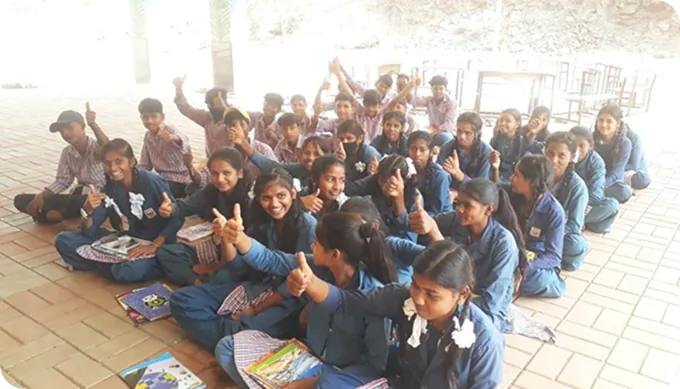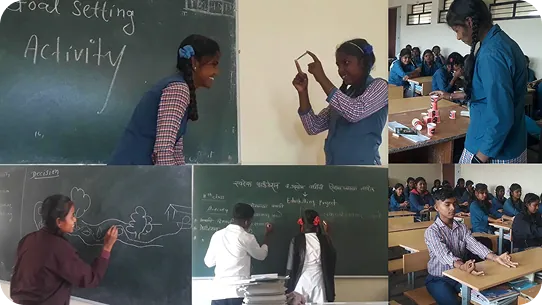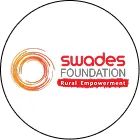What is EduSkilling?
EduSkilling is a groundbreaking initiative that creates equitable opportunities for growth for students from low-income families, particularly those from rural and tribal communities. It is a school-based intervention that integrates 21st-century skills with soft skills to boost students’ confidence and self-belief, enabling them to aspire to bigger and brighter futures.
The divide in opportunities after school is stark between rural and urban youth. While 44% of urban youth go on to enrol in higher education, the figure drops to just 27% for rural students. Even in this, unlike their urban peers who pursue professional courses such as medicine, management, or engineering, rural students are more likely to enrol in arts or science streams, which are often associated with lower-paying jobs.
















 Head office: 3, Nirman Inspire, Kanherewadi, Opp. Old CBS, Nashik
Head office: 3, Nirman Inspire, Kanherewadi, Opp. Old CBS, Nashik Email: hello@unnatva.org
Email: hello@unnatva.org